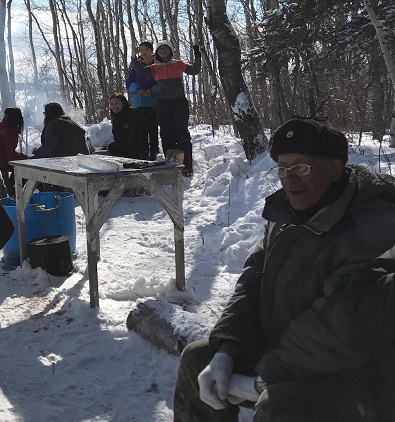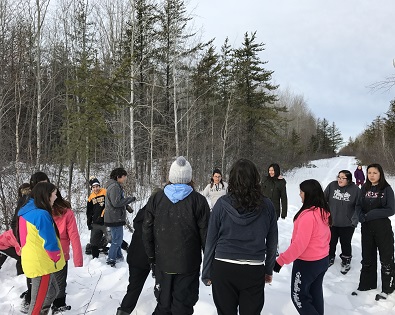This is Part 2 in a series on the International Centre for Northern Governance and Development.
Teacher Billie Jo Natomagan is currently working a masters project focused on land-based education. Photo submitted by Billie Jo Natomagan.
Graduates and current students taking their masters’ through the U of S’s International Centre for Northern Governance and Development are speaking up about how its programs have transformed their lives, and are expressing concern for the future of the programs.
This comes after a crushing budget blow was dealt by the province last month when it nixed all $1.1 million of province’s funding for the ICNGD.
There are no guarantees on whether the ICNGD’s two masters programs will take new admissions this fall, with the U of S saying it will be at least four weeks before that decision is made.
Billie Jo Natomagan said until she heard how accommodating the Masters of Northern Governance and Development is, she didn’t think it would be possible to attain a masters.
“For a long time – until this year – I was a single mother, full-time teacher, so that’s a very demanding career,” she said.
Now the Pinehouse Lake woman is set to finish her degree this summer.
“It really brought a lot of self-confidence to me as an individual and not only that I’m able to encourage other people in the community, other teachers, students, you know, that higher education is possible and it’s only possible through programs like this.”
Natomagan is already putting her education into action by building a community garden in partnership with the village and the school, which she hopes will build confidence, life skills, and self-sufficiency in her community.
Her students are currently plotting the garden’s layout in class with plans to maintain it over the summer, and Natomagan’s final master’s project revolves around land-based education in northern schools.

Teacher Billie Jo Natomagan is currently working a masters project focused on land-based education. Photo submitted by Billie Jo Natomagan.
Her research builds off past graduate Brandon White’s master’s research project, which was on greenhouse feasibility in northern mines and communities.
He now has a career in environmental consulting, and said “I would not have got this job if not for the ICNGD.”
White, originally from La Ronge, said the MNGD is a unique program that “really spoke to me as a northerner.
“The really great thing about the program was that it was not purely theoretical. You had to get into a community and you had to inspire change and it was applied research” that brings new insight and professionalism when graduates return to their communities, he said.
In his eyes, cuts for higher level education are concerning and “really handicapping the ability of the north to grow and expand, and assert itself, and add value to the provincial economy.”
Natomagan is one of the 34 current students who will be able to graduate from the program, which runs in partnership with the Arctic University of Norway and includes an international field school.
There are already more than 50 people who have finished the ICNGD’s masters programs since the centre’s 2009 launch.
